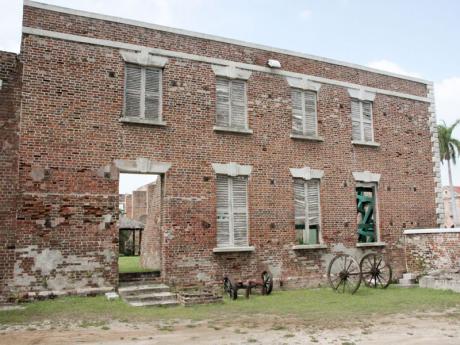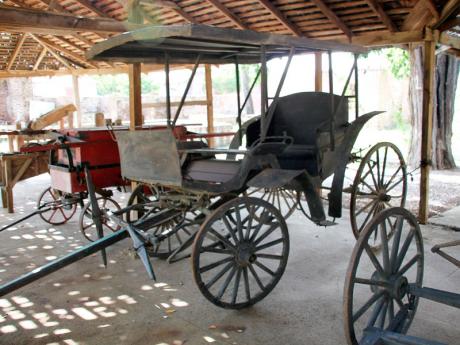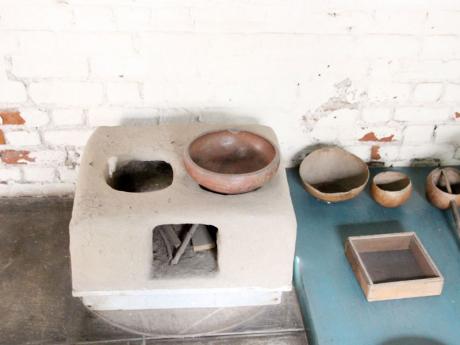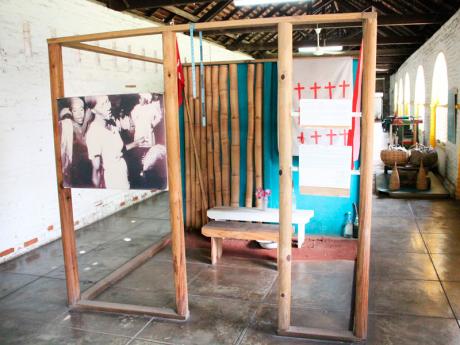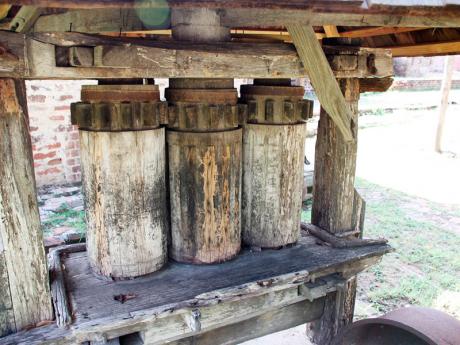Encased in a time capsule
Amitabh Sharma, Contributor
On an October afternoon, as the sun played hide and seek among the clouds, the shadows of the Georgian façades stretched and contracted like a time lapse video - the Spanish Town Square sat enclosed in a time warp as the world whizzed past.
Home to Jamaica's finest historical buildings, the brick-and-mortar structures stand testimony to an opulent, sophisticated era that was a turning point in history.
The King's House in the People's Museum of Craft and Technology holds a treasure chest of artefacts.
"The exhibit celebrates the great creativity, industry and self-reliance of the newly freed Jamaicans," said Johnathan Greenland, director of the National Museum Jamaica. The items showcasing the people's transition from slavery and struggling to building a life of self-reliance and freedom while paving the path for future generations.
The exhibits in the museum assume as much historical and archival value as the building in which they are housed - it was from the portico of King's House that the Emancipation Proclamation was read by Sir Lionel Smith, following the signing of the Emancipation Act in 1838.
What remains today is only the portico and façade, "In 1925, the building was gutted by fire," Greenland informed.
Aura of freedom
The air in the museum, which were originally stables, emanates the aura of freedom, a renewed life frozen in a time capsule.
"The exhibits are divided into three parts - household, recreation and vocation - and highlight the integration of different cultures in the Jamaican society," said Tyrone Barnett, curatorial assistant, People's Museum of Craft and Technology.
A limestone water filter stands at the entrance, with a earthen pot at the bottom to the catch the filtered water. "This is (one of) the earliest examples of keeping water cool," Barnett said, pointing at the rustic, simple yet effective mechanism.
The minaret-esque water purifier enclosure leads into a kitchen - with a wood-fire stove, plastered with mud and a yabba pot on the top - convergence of Indian and African influences - the stove is used in villages across India and the yabba pot, which traces its roots to Africa.
What's life without a little fun and games ...
cricket lovely cricket, a legacy the British left behind in all their
former colonies, reflected in a bat made of coconut bark, stand
testimony to the popularity of the game and the ingenuity of the people
playing it.
The marketplace included a grocery store, a
handcart full of wicker baskets, the farmer's pen, where he stored all
the implements and a blacksmith's shop, with iron smelter hammer and an
array of hand-crafted horseshoes.
BALM YARD
CENTREPIECE
The 'balm yard' is the centrepiece, a
simple bamboo structure with a measuring tape tied at the entrance. "The
significance (of the measuring tape) is to ward off the spirits so that
they don't trouble the family," Barnett
explained.
The museum was opened in 1961 as the Folk
Museum and was renamed the People's Museum of Craft and Technology in
1979.
Greenland said, "The exhibits can be regarded
as coming from the more austere, humble experiences participated in by
the ordinary people of Jamaica."
Austere and humble as
they might seem, the exhibits are a living example of Jamaica's motto -
'Out of Many, One People', showcasing the diversity and convergence of
varied cultures and ethnicities in the island.
The
courtyard of King's House is dotted with remains of the glorious past -
carriages and a 19th Century coffee grinder sit in the courtyard. Behind
the the front wall, grassy stubs and bricks embedded in the ground, are
the remains of the grand ballroom that was once the place visited by
the who's who of the land.
Though, only the portico
and façade remain of the building, the awe and the character are still
fresh in the air.
Greenland informs that plans are
underway to infuse a fresh lease of life.
"We are
currently in the process of a major refurbishment and design, which is
supported by the Tourism Enhancement Fund and Urban Development
Corporation," he said.
As the initiative is on to
restore King's House to its former glory, to encourage people to come
and savour the heritage and historical richness, it is a long road ahead
and Greenland is optimistic of the outcomes after the refurbishing is
complete and enthusiastic about the prospects.
"It is
not where you start, but how high you aim that matters for success,"
said Nelson Mandela; for this piece of Jamaica's historical past, that
journey has
commenced.
Photos By Amitabh
Sharma

